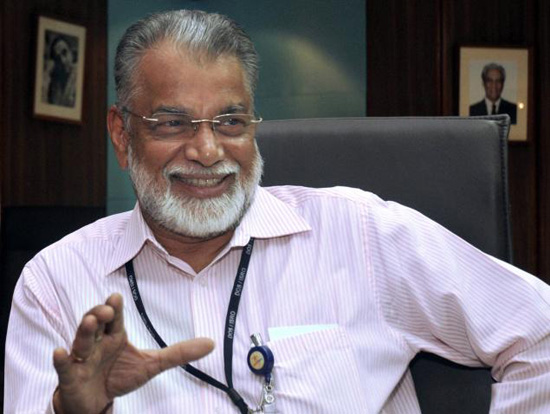Bangalore, May 28: The state-run Indian space agency Tuesday opened a navigation centre near Bangalore for a proposed Indian Regional Navigation Satellite System (IRNSS), a constellation of seven spacecraft that will enable users to know their location and time accurately.
Located in the Deep Space Network (DSN) complex of the Indian Space Research Organisation (ISRO) at Byalalu, about 40 km from here, the navigation centre will function as the main ground station for the satellite system.
The satellite system will be equipped with high precision atomic clocks and transmit navigation signals to multiple users round the clock.
Union Minister of State in the Prime Minister’s Office (PMO) V. Narayanasamy inaugurated the centre in the presence of ISRO chairman K. Radhakrishnan, other space scientists and officials of the space department.
The first of the navigation satellites (IRNSS-IA) will be launched in the wee hours of June 12 onboard the space agency’s home grown rocket (PSLV-C22 XL) from its spaceport at Sriharikota off the Bay of Bengal in Andhra Pradesh, about 90 km from Chennai.
“The 1,425 kg navigational satellite will provide terrestrial, aerial and marine navigation services and help in disaster and fleet management across the region, after it is positioned in geostationary equatorial orbit about 36,000 km away from the earth,” Radhakrishnan said on the occasion.
The navigation centre will also be responsible for the time reference, generation of navigation messages and monitoring and control of ground facilities, including ranging stations.
“Key to the global positioning system (GPS)-based navigation support is the time reference to which all ground-based systems and satellite clocks are synchronised. The time reference is generated by the high precision timing facility at the navigation centre, which is equipped with high stability, high precision atomic clocks,” Radhakrishnan said.
A network of 21 ranging stations located across the country will provide data for the orbit determination of the satellites and monitoring of the navigation signal.
The data from the ranging and monitoring stations is relayed to the data processing facility at the centre on real-time basis to generate navigation messages, which are in turn transmitted to the satellites through the spacecraft control facility of the space agency at Hassan in Karnataka (180 km from Bangalore) and Bhopal in Madhya Pradesh.
“The IA satellite will be tested in its geostationary orbit for about six months before commissioning for operational use. It will have a 10-year lifespan. The remaining six satellites of the IRNSS constellation will be launched by 2015 at the rate of every six months,” Radhakrishnan said.
The navigational satellites will provide an accurate real time position, navigation time (PNT) services to users in air, sea and land on a variety of platforms under all weather conditions.
The navigation satellite system will provide two types of services – standard positioning service for civilian use and restricted service, which is encrypted, for authorised users (military and security).

